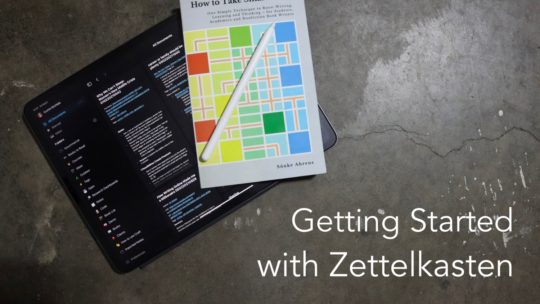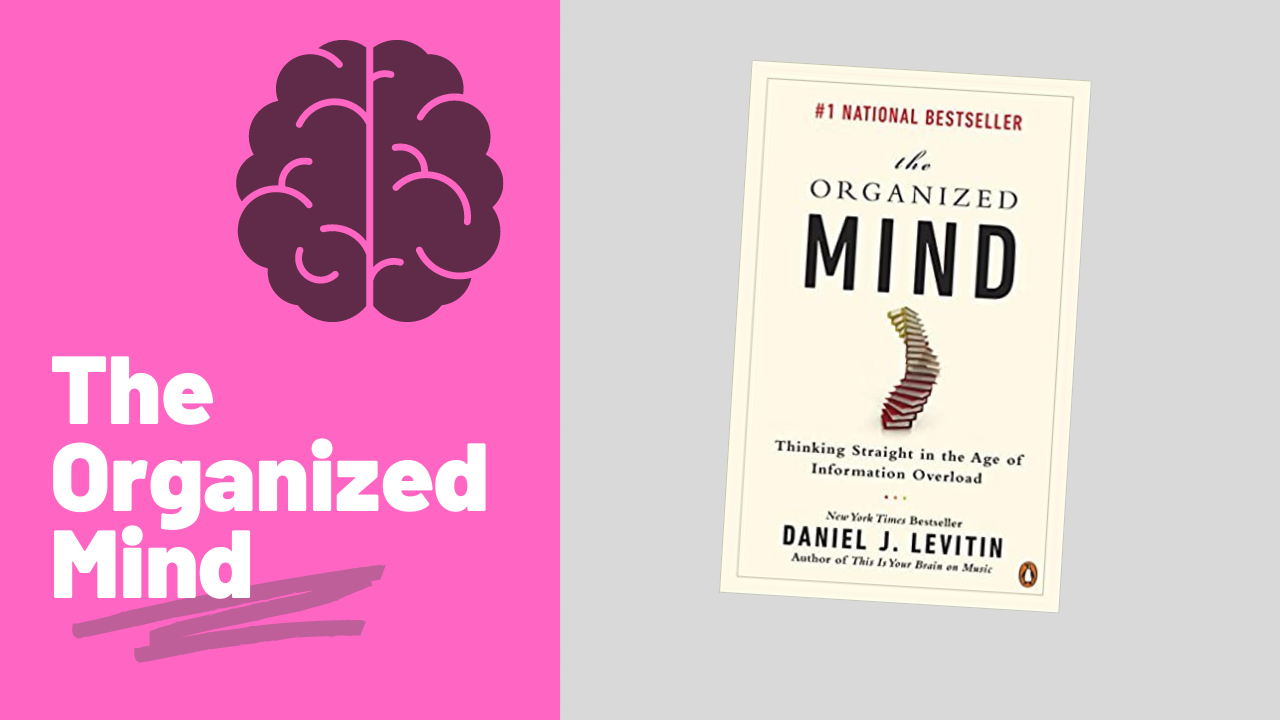Who doesn’t want to be organized? Who doesn’t want to have all the thoughts that run through their head in a decent order so that they can be retrieved as needed? Trying to answer these questions is what The Organized Mind, by Daniel J. Levitin, is meant to do.
Let’s look at some of the interesting points in the book.
Our Memory is Incorrect
Early on Levitin introduces the idea that our memory is extremely fallible and we don’t even realize it1. While we often think we’re remembering something correctly, in very few cases are we actually doing this.
Even highly emotional and memorable events are not remembered properly. There is an excellent episode of Revisionist History called Free Brian Williams that shows this phenomenon. One of the keys in that episode for me is the discussion around where you were during the 9/11 attacks. While we may know beyond doubt, that podcast episode shows us that we’re likely wrong. When presented with a real written account that we wrote the day of the attacks, we’ll still say that whatever our current memory is is correct and we must have made a mistake.
So Much Data
How much data goes by in a day for you? I know it’s far to much for me to keep track of. Even just the blog posts I subscribe to are often overwhelming, let alone anything on Twitter or books titles I think look interesting. The truth is that we have so much flowing past us every day that we have trouble separating mundane decisions from things that actually matter2.
While reading that section I was getting many messages to try Hypernotes. Not only were the founders of Hypernotes emailing me almost daily to try their software, my comments were full of people saying they wanted me to try it. I was getting emails from individuals and Twitter direct messages.

Getting Started with Zettelkasten
If you’ve been wondering about what Zettelkasten is and how to start organizing your notes with this excellent system then this course is for you. I’ll walk you through how I use this system to develop my reading research for posts like this one here. You can also become a member to get all my courses.
$99 USD (30-day guarantee)
While people want me to try stuff and give a verdict, the truth is trying new tools is almost always a waste of time. It’s much more important to dig into the tools I have and produce good content with them.
A second great point around the amount that flows past us in a day dealt with the affects of marijuana on our cognitive abilities vs the affects of multi-tasking. Levitin cites studies to show that there is a greater cognitive impairment due to multi-tasking that from smoking marijuana3. As I read this I thought of changing all job descriptions that talk about multi-tasking into a request to smoke weed.
Not only would they get more applicants, they’d have more productive staff if they cut out multi-tasking.
One of the most important things you can do in your day is choose where you’re going to focus your attention4. Cal Newport hits the same note in Deep Work when he says that if you don’t plan your day well, you’ll fall into the easiest things.
This is checking social media, watching TV, randomly flipping to email to show that you’re busy by replying to email lots.
Combating this is why I do Time Blocking, every day. Even a chunk of my weekends is blocked out so that I leave the weekend happy with how I spent my time.
Social Connections and Low Bandwidth Communication
When it comes to social connection, Levitin says that college students are less likely to say it’s important to put themselves in the place of others5. Yes, they have less empathy than the general adult public. Levitin theorizes that this is because College age adults connect online without doing any of the high bandwidth communication present in a face to face meeting.
This idea lines up with a few other resources. In Digital Minimalism, Cal Newport, talks about the difference between high and low bandwidth communication. When we have high bandwidth, face-to-face, communication our empathy for others is higher because we can see and thus feel their emotions.
Gene M. Twenge talked about this in relation to iGen, kids hitting middle school when smartphones became common. Kids spend nearly all their available time outside school connecting on devices, never building empathy. She also surmises that this lack of connection in a physical space is a contributing factor to the rise in the mental health needs of kids.
Why We Procrastinate
One very interesting point Levitin brought up about procrastination on big projects dealt with the pleasure centers of our brain and how any resolved task brings a reward in terms of brain chemicals6. This is why it feels great to take the trash out instead of working on that hard presentation at work.
This is also why it feels great to try out different tools instead of producing something creative. You’re checking off something, trying out a new research tool, instead of doing the hard work of actually doing research and connecting notes.
One Big Issue
There is at least one big issue in the book, dealing with Levitin’s support of meritocracy7. Levitin puts great weight on the ability of meritocracy to let people succeed based on their actions, but never addresses the inequalities in society that make it a very narrow group of people that can succeed in a world based on meritocracy.
Meritocracy selects for people that already have the resources in time and money to do some sort of work for free to get noticed. It then lets people fall into the Confirmation Bias of thinking they are recognizing true skill instead of someone with free time. It supposes that we all start an equal footing, which ignores theft of generational wealth from minorities or the fact that women spend more time raising children and caring for relatives thus don’t have the same time as men.
Should You Read The Organized Mind by Daniel J. Levitin?
While there are many decent points in The Organized Mind, it was a slog to read. Lots of science in it. Lots of $20 words.
If that’s the type of book you’re looking for, this may be a great read for you.
